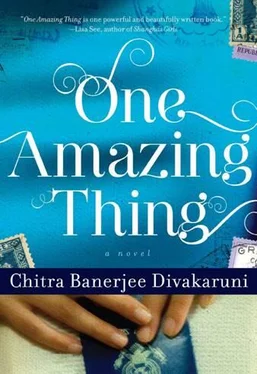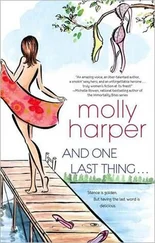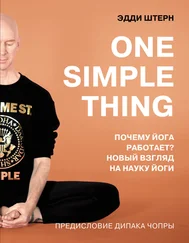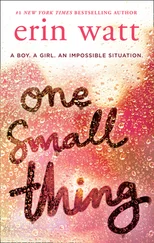Cameron lay curled on the table, fetal position. Uma thought he looked like the unborn child he had dreamed of. When he heard her calling his name, he opened his eyes and gave her the same, reproachless, infant look. He had been holding on to the flashlight, which contained their last batteries, and he raised his fist slightly, as if to say he would keep it safe until he could hand it to her. Though chunks of plaster covered the table and dotted his face and arms, he appeared unhurt.
Uma waded back to the table through the black water, their own Mnemosyne, pool of memory, drawing their dearest secrets out of them. The ceiling looked as if it was holding, but even if it wasn’t, she couldn’t bear to leave Cameron by himself. They were all going to die anyway, unless a miracle happened soon. When she put an arm around him, Cameron’s body felt colder than normal-but what was normal anymore? His heart fluttered like a snared bird. She could hear wheezing with each breath he drew. He gave her a small, blanched smile. Against his silence, the comments about hope and forgiveness that she had planned to offer seemed platitudinous. Who was she to speak, anyway? Hadn’t she wronged the people closest to her: Ramon because she had not cherished him as he cherished her; her mother because she wouldn’t listen to the cautionary lessons she tried to teach Uma; her father because when he needed someone to talk to, she had turned away. Forgive me, she said to them in her head. But it did not provide her with the same satisfaction as hugging a plump maternal body, or rubbing her palm along a jaw sexily stubbled with a night’s growth of beard, or leaning against a no longer-muscular chest and breathing in the distinctive smell, familiar from childhood, of Old Spice cologne.
THE AFTERSHOCK SEEMED OVER. OTHERS VENTURED OUT OF their doorways and checked for damage, looking up worriedly at the ceiling. Jiang, whose face was flushed and feverish, told Uma they should make Cameron sit upright; it might improve his breathing. Lily helped them prop him up. The smell of gas was distinctly stronger, but no one commented on that. They climbed back onto their tables, drawing their knees up and trying to dry their legs with the rags that had once been a sari colored by hope. Mangalam examined the water level and said that at this rate, the water would reach the level of the tables in an hour; they would then have to collect chairs from the other side of the room, place them on top of the tables, and sit on those. These tables could accommodate only two chairs each. Three people would have to take their chairs into Mangalam’s office, where the table was larger. But there was time for the last story before the group split up.
“I DID NOT MISS MY PARENTS AT ALL,” UMA BEGAN. “WHEN I went away to college, I guess you could say I was heartless and self-centered, like many young people. My mother took it hard, but my father-”
Before she could continue the chronicle of her filial perfidies, there were noises above. Everyone cringed, but these were not the rumbles of an earthquake. There was a tapping and banging, a crash like furniture toppling over. They thought they heard engines revving, a door slammed shut.
“It’s people!” Tariq said. “Rescuers!” Everyone looked up, elation battling disbelief on their faces. They gripped one another’s arms. Mrs. Pritchett and Lily cupped their hands and yelled for help, and the others joined in. But there was no answer from above. The clangings grew quieter, as though receding. When a large chunk of plaster fell into the water, it scared them and they stopped shouting.
Tariq stood on the table, craning his neck. He wanted to see through the hole in the ceiling. But the angle wasn’t right. “I’m going to go to the other side of the partition,” he said, “climb on a chair or something, and figure out what’s going on.” He jumped down, splashing water in every direction.
“I’ll come with you,” Mangalam said, taking the flashlight. “We can tie a strip of cloth on a post and wave it through the hole.”
Mr. Pritchett, who had struggled into his pants, hurried after them. Uma, too, longed to follow, but Cameron was propped up against her good arm, and she didn’t want to move him.
“Warn them,” Cameron whispered. “There’s a dead body in the water-fell from upstairs when the ceiling collapsed.” She peered at him in shock. Until this moment, in accepting that she might perish, she had thought she understood what death meant, but it had only been an abstraction. This body, within fifty inescapable feet of where she was now, bloated and rubbery and beginning to decay, made death a touchable horror.
Cameron nudged her. “Don’t shout-people might panic. Go after them. I’ll be okay.”
“Go, I’ll watch him,” Malathi said from Cameron’s other side. Uma felt Malathi’s firm, bangled arm come around Cameron’s torso. She was humbled by Malathi’s calmness in the face of what they had just heard.
The thought of stepping into the water where the dead man lay filled Uma with revulsion, but Cameron was waiting. She climbed down gingerly but couldn’t stop herself from shuddering. She walked around the partition and stopped at the edge of the room. Mr. Pritchett was bent over, clearing debris from an area that lay directly under the gash of the collapsed ceiling. That, she guessed, would be where the dead man fell. She imagined the heavy drop. She hoped he had died before falling, that he didn’t have to drown in liquid blackness. Tariq and Mangalam were dragging a sofa through the water. They meant to stand it on its side. One of them would climb on it while the others steadied him.
“After I make some space here, we’ll need to find a rod to tie a cloth to,” Mr. Pritchett said. “Can you give me a hand?” He reached into the water.
“Stop!” Uma snapped. “Move away!” But it was too late. In the beam of the flashlight Mangalam aimed at her, she saw the shock on Mr. Pritchett’s face. The dark water splashed up as he let something heavy fall and backed away. She heard him retch and stumble in the dark. There was another splash. She gritted her teeth and hurried past the corpse toward him.
“I touched it,” Mr. Pritchett said to Uma, between heaves, as she tried to pull him up.
“Hush. It’s all right,” Uma said. She rubbed his back.
“What’s wrong?” Tariq called from the other end of the room. When she told him, he dropped his end of the sofa and cursed.
Among them, Mangalam seemed the least affected. He seemed calmer, if anything. Cameron’s decline had forced him to take up the responsibility that should have been his in the first place. “We can avoid that area,” he said. “Let’s set up the sofa here. It won’t give us as good a visibility, but it’ll do. We have to hurry. If someone’s up there, they’ll move away unless we let them know we’re trapped here. Mr. Pritchett, we need you to hold one side of the sofa. Uma, fetch that rod from near the wall.”
Thus rallied, they did what Mangalam said. Uma found that she was able to function if she kept her mind on the task at hand and didn’t think of the water flowing from the corpse toward her, contaminating her with deadness. In a few minutes, they upended the sofa. Tariq climbed on, lifted the rod as high as he could through the hole, and waved the makeshift flag vigorously. Uma trained the flashlight on the blue rag. When they shouted for help, the group in the other room joined them, like a Stygian chorus. Plaster fell again, but they continued. What did they have left to lose? There was a loud noise upstairs like an explosion. Then silence. When their throats grew raw and they were sure there were no further noises above, they gave up, one at a time. Some of them sobbed for a bit. Some sat wordlessly, devastated. To have been extended those minutes of hope only to have them snatched away was the cruelest cosmic joke, the final insult.
Читать дальше












